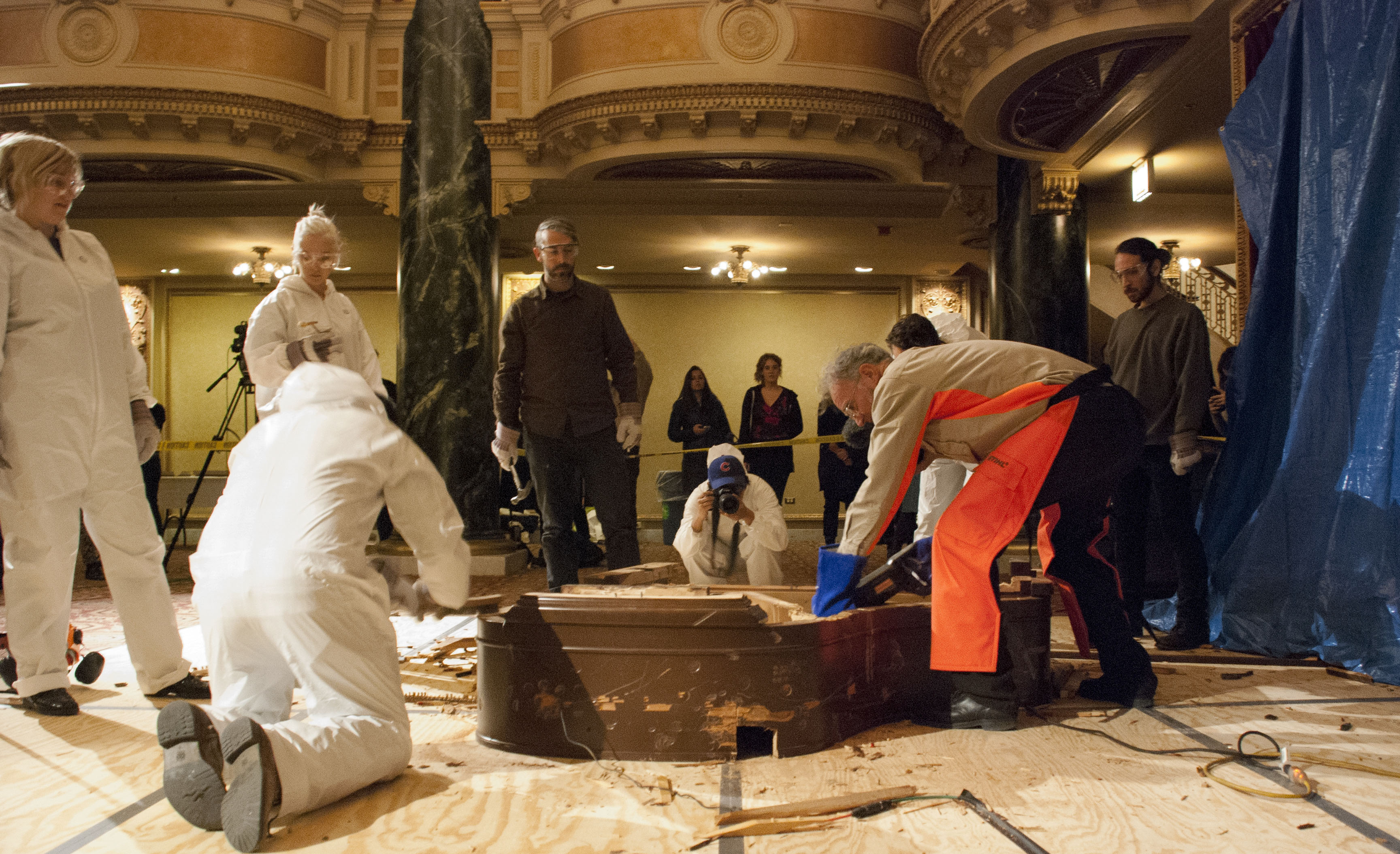How Officer Wilson Escaped an Indictment
When Darren Wilson shot and killed Michael Brown in early August, a surge of mostly peaceful protests lasted until the grand jury released a statement. After that, a mix of violent and nonviolent protests swept the nation as a reaction to the countless United States civilians who have been shot and killed by the police force whom they expect, and pay, to protect them. Most civilians still are asking— how was the evidence presented in the grand jury case of Brown’s shooting not enough to indict Officer Wilson?

How A Decision Was Reached:
The question of the case was never whether Wilson shot and killed Brown, but whether there was probable cause for a trial. There has been a great deal of criticism on how the Michael Brown case was handled, and why a man who undeniably used deadly force and killed an unarmed young man has not been charged. The reality is a disheartening one, and it’s that the law rarely indicts police officers for killing a civilian while on duty.
First, officers in states like Missouri face a grand jury who are presented with the facts of the case, and then have to determine if the officer acted lawfully or not. The grand jury in Missouri is composed of twelve people, nine of whom had to agree that Wilson was guilty to indict him. This means that only four of the nine jurors had to agree that Wilson in fact, acted lawfully and that there was no probable cause to send the officer to trial.
Police officers are allowed to use deadly force if it is reasonable to believe that the person being apprehended is a danger to themselves, or others around them. In this way, Officer Wilson acted lawfully, if that’s what he thought. Police officers who kill civilians only have to admit that they felt threatened in that situation or by that person in order to justifiably shoot that person. This kind of logic is singlehandedly the largest protector of officers who kill civilians yearly.
Prosecutor Bob McCulloch and his assistant prosecutors were able to present to the grand jury just one symptom of the case that made Officer Wilson’s testimony seem like a legitimate one. It was to convince the grand jury that Michael Brown was a felon (he had robbed a grocery store for cigarillos earlier that day – which is a felony). By providing context for Wilson’s ability to determine what is “objectively reasonable” in the face of what he allegedly perceived to be a dangerous felon.
James Fennerty, an attorney with the National Lawyers Guild of Chicago, spoke by phone with F Newsmagazine and explained how the process, in its most simple form, is biased towards police officers.
Fennerty explained that the role of the grand jury was to determine if there is probable cause to hold someone for trial. “They can indict somebody and then the trial would be held; they [the jury] don’t make a decision about guilt or innocence. The state’s attorney can lob up softball questions.”
He then went on to explain how the state’s attorney can manipulate a trial to suit the verdict he wants to get. “The trial is all controlled by the states attorney and what happens, as in what the questions are, that’s always the problem. The state’s attorney could give a question to one person one way and to another person, they might try to slant it [the question]. There’s no one there to cross-examine [the witness].”
Prosecutor Bob McCulloch was able to highlight some pieces of evidence and present others as invalid. In his press conference he said that some witnesses “were just making things up.” Fennerty explained, “The prosecutor is the state’s attorney and they are usually friends with the police and that’s a huge problem. They are working hand in hand to put people in jail. The prosecutors don’t want to indict a police officer.”
The best case for Michael Brown is that the Department of Justice (DOJ) will take action to prove Wilson violated Brown’s civil rights.
The problem really is here, that if civilians are disenfranchised in any way, the law is — at least historically — not on their side. In 2012, officers in the Saginaw, Michigan Police Department circled and fired 45 bullets at a mentally ill homeless man who had pulled out a pocket knife on a police dog who lunged at him. He was shot a total of 14 times, and after that was handcuffed by officers. Milton Hall, the victim in this case, was African-American. After none of the officers were indicted by the grand jury the Civil Rights Division of the Department of Justice did not file federal charges against the eight officers or police department because it “does not present sufficient evidence of willful misconduct to lead to a federal criminal prosecution.”
Reason to doubt how an indictment was reached:
The transcripts of the case reveal that Officer Wilson’s testimony, while unbelievable at times, was not probed by the prosecutors.
Wilson was not faced with cross-examination, which would have probably put some of his statements on the incident as unbelievable or invalid. In the transcript released by Prosecutor McCulloch, Wilson described the incident as follows: “He grabs my gun, says, ‘you are too much of a pussy to shoot me.’ The gun goes down into my hip and at that point I thought I was getting shot. I can feel his fingers try to get inside the trigger guard with my finger and I distinctly remember envisioning a bullet going into my leg. I thought that was the next step.”
It is fair to ask the officer to show against his own body, how Brown could have put his finger near the trigger of Wilson’s gun, as well as how the the gun was forced downward into the Officers hip. But the prosecutor never asked Wilson to demonstrate how Brown’s hand made its way onto his gun.
Dorian Johnson, who was with Mike Brown when he was shot, testified that the officer made initial contact by hitting the two young men with his car door. Johnson said that it was Officer Wilson who assaulted Brown by grabbing him by the neck and neckline of his shirt, pulling him through the window. At that point, there was contact (punches) between the two men. After Officer Wilson had control of Brown’s right arm for some time they struggled with one another, and Wilson got his gun out and threatened to shoot. Before the threat was finished, the gun had gone off, according to Johnson’s testimony.
The problem is that the two testimonies follow roughly the same timeline, but the aggressors in each are different; each testimony drastically changes the situation.
Yet Wilson’s statements were not challenged by the prosecutor, whereas Dorian Johnson’s was cross-examined.
Wilson also called Michael Brown a “demon” and said that he “felt like a five-year-old holding onto Hulk Hogan.” The San Francisco Public Defender Jeff Adachi released a public statement on November 26 stating “Wilson’s description of Brown as a ‘demon’ with superhuman strength and unremitting rage, and his description of the neighborhood as ‘hostile,’ illustrate implicit racial bias that taints use-of-force decisions. These biases surely contribute to the fact that African Americans are 21 times more likely to be shot by police than whites in the U.S., but the statement’s racial implications remained unexamined.”
Critics of the grand jury say that the hearing was set up to exonerate Wilson. Notably MSNBC’s Lawrence O’Donnell examines the transcripts from the hearing. He said that the Assistant District Attorney Kathy Alizadeh handed the grand jury a copy of a 1979 Missouri law (on Sept. 16) that was ruled unconstitutional by the Supreme Court just six years later in 1985.
O’Donnell explained, “It is legal to shoot fleeing suspects simply because they are fleeing.” He then says, “The grand jury listened to the officers testimony believing that according to the law Michael Brown did not have to pose any kind of threat to Officer Wilson to justify Officer Wilson shooting him dead.” It wasn’t until later in the trial (Nov. 21) that Ms. Alizadeh corrected her initial testimony.
Prosecutor McCulloch himself holds strong family ties to the St. Louis Police Department, and that poses the question: was it ethical for him to pursue this case?
There are still other questions that remain at large: What narrative of the Michael Brown case is the real one? If the evidence proves that police officers were making rash decisions, do those officers still qualify for defense under acting “objectively reasonable?”
The idea behind police is that they serve and protect, but when the police shoots and kills a civilian, who polices them? The prosecutors; the same people that they [the police] work with hand in hand. After an officer kills a citizen it is the prosecutor’s job to find evidence and present it to a grand jury. Both the criticism and protesting of police departments nationwide is warranted, since civilians who expect the police to serve and protect are being shot and killed by that very department.







